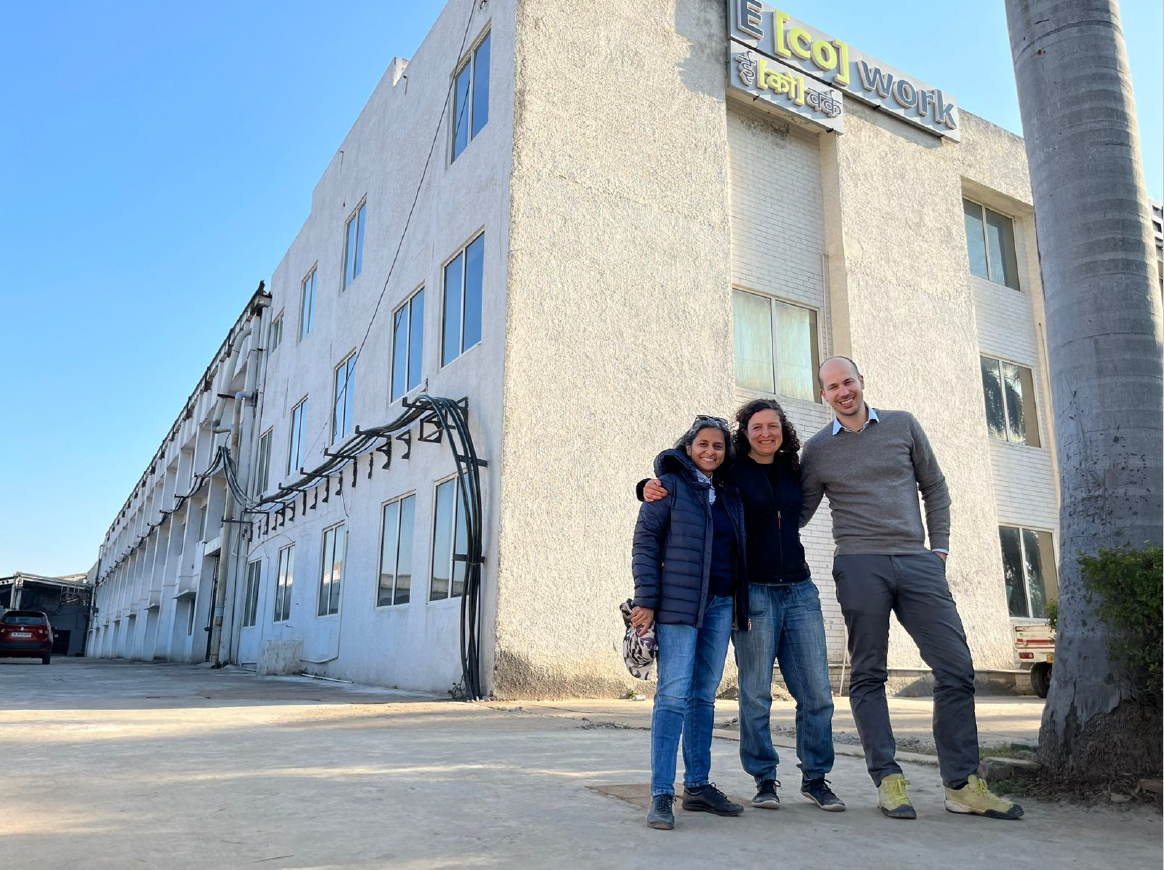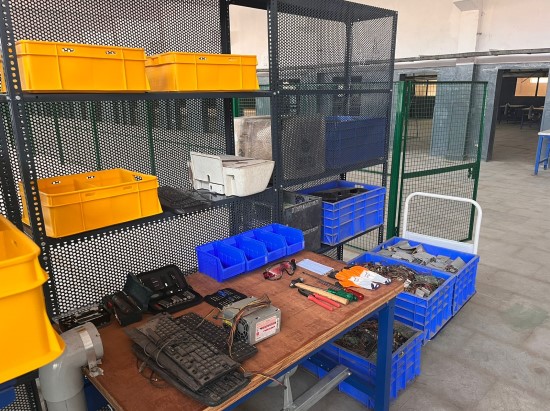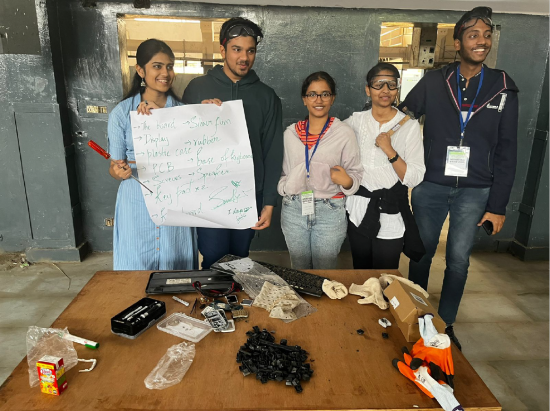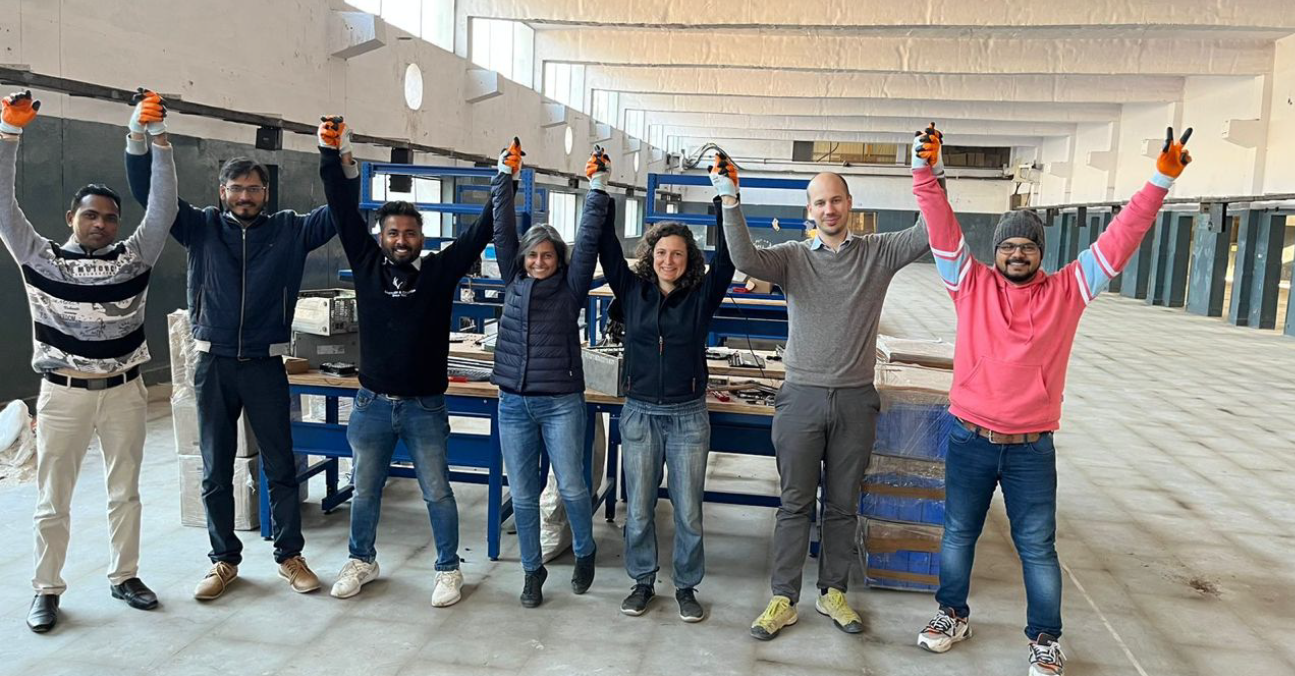The world's e-waste challenges
Global e-waste volumes are expected to rise as the use of computers, mobile phones, and other electronics grows, alongside their rapid obsolescence. The Global E-waste Statistics Partnership (GESP) reported in 2020 that e-waste volumes increased by 21% in just five years leading up to 2019, when 53.6 million metric tonnes of e-waste were generated.[1] According to GESP, only 17.4% of e-waste produced in 2019 reached formal management or recycling facilities. The rest was landfilled, largely in low- or middle-income countries with a lack of regulation, or where regulation exists but is poorly enforced. There, e-waste is dismantled, recycled and reprocessed by informal workers in environments where infrastructure, training and environmental and health protection are non-existent or poorly addressed. In comparison, GESP reported that the 17.4% of e-waste that was collected and properly recycled prevented the release of 15 million tonnes of carbon dioxide equivalents into the environment.
According to the WHO, informal workers, often including children and pregnant women, who recover valuable materials such as copper and gold, are at risk of exposure to over 1,000 pollutants, including lead, mercury, nickel, brominated flame retardants and polycyclic aromatic hydrocarbons. Other children live, go to school and play near e-waste recycling centres where high concentrations of toxic chemicals, especially lead and mercury, endanger their health.[2]
Approaches that ensure environmentally sound management of e-waste and the health and safety of workers, their families and communities are needed, as well as monitoring of e-waste exposure and health impacts. In addition, better and safer re-use of materials and the production of more durable electronic and electrical equipment also play a crucial role.
Idea of E[co]work
Countries like India have large informal collection and recycling sectors, with Northeast Delhi being a major hub where e-waste from around the country is aggregated, traded and dismantled. In India, 95% of the approximately 3 million tonnes of e-waste generated per year is collected and processed by informal micro-entrepreneurs. Dr. Deepali Khetriwal is working on this topic since her master thesis at University of St. Gallen in Switzerland, where she studied International Economics. At that time, approximately 18 years ago, when it was a relatively new topic, the policy regulations were only in development. Since then, she worked with the Swiss Agency for Development and Cooperation and UN agencies on projects related to e-waste. In 2018, Deepali, Dea Wehrli and Michael Gasser met in Mumbai where the seeds of the E[co]work were sown. They recognized the problems of informal workers in the e-waste sector. Over the years, they had worked on various approaches to formalizing the informal sector, however these hadn’t been successful in changing the status quo. In their journey to understand pickers’ conditions, they realized that a different approach for effective interaction was needed. Not only through the necessary trainings, but also by finding a way how to support them with better technology and equipment, and crucially the legal space they could operate from. And so, the concept of safe co-working spaces and shared economy model for informal workers in the e-waste sector was born under the label of E[co]work.
The main idea is to provide a facility for informal e-waste workers supplying the necessary equipment for dismantling and to provide trainings to improve their skills and knowledge, as well as trainings on health and safety, business, and regulatory aspects. E[co]work focuses on manual dismantling that can be done safely with simple tools as it is easier to separate material fractions and more resource efficient compared to a shredder machine that can process a lot of material, but at a very low quality due to everything being shredded and intermingled. The E[co]work team wants to make the dismantling process more efficient and safer for the workers by providing a reliable electricity network, workbenches with ergonomic equipment, good lighting, good ventilation, and other tools, fixtures, and small machines, which can help the entrepreneurs process more material and have better business. They are also planning to have a digital tool that tracks the incoming material and types of products, how they get dismantled and what material output was generated. In addition, they want to create a digital platform to connect the micro-entrepreneurs with downstream recyclers, producers who have legal obligations for take-back and recycling, and generators of e-waste.
As regulations in the field of recycling and processing e-waste as well as corresponding documentation requirements are developing fast, E[co]work wants to create an interface for the existing informal sector entrepreneurs enabling transition to mainstream businesses.
Besides the part of their facility which is designed as a space for dismantling, E[co]work wants to use another part of their facility as a storage area for the separated materials like plastics, steel, copper, printed circuit boards, etc. Downstream recycling and material recovery companies that can process these materials can rent this storage space, as it will be advantageous for downstream businesses to have access to the reclaimed material which can otherwise be difficult for them to source. The dismantlers can dismantle the e-waste and immediately place it in a container and be paid straightaway; they don't need to do any additional transport, loading, or unloading. It's quick and simple for them, which makes it attractive and cost-effective. Another important factor with the informal sector is that they work on very small margins, with low turnover. “The turnover on the day is the capital for the next day – and the small profit margin is just sufficient to cover their basic expenses. Therefore, they don't have a lot of holding capacity, and are unable to grow or scale due to limited access to capital“, Deepali explains. If they sell the separated materials, they want the money immediately, they can't take it on credit and be paid 30 days later. This makes it difficult for them to work with larger companies, because large companies can't deal with everyday cash and small payments. For this reason, E[co]work will provide the documentation and traceability of the e-waste brought in by the microentrepreneurs as well as being delivered to downstream recyclers. E[co]work can play the role of the interface to channelize the material, information and financial flows, enabled through a digital “marketplace” with payment and validation services. E[co]work wants to work on trainings and various other business support services, such as business insurance, access to capital etc. to make micro entrepreneurs more resilient and be able to grow and join the mainstream. For example, according to Deepali, in India, it is very expensive to insure a small business on an individual level. They are exploring innovative approaches to create financial security as well as other social and medical benefits, which is also an attractive benefit and incentive for the microentrepreneurs.
The services for informal sector micro entrepreneurs, as E[co]work calls them, should work on a pay-as-you-go basis. That is the business model that is going to be the main source of revenue. And in addition, E[co]work has other services, which shall be offered at fair prices, like helping to file (mandatory) paperwork, e.g. for the tax office, or accessing finance, doing the regular accounting or what else might be required. The aim is to keep it very affordable and make it attractive for the sector at the same time.
Next steps at E[co]work
E[co]work is currently working on all the legal paperwork for consents and authorizations from relevant government authorities and are looking forward to inaugurating their facility in time for World Environment Day on 5th June. They already had first visitors from the informal sector who are also excited and interested in the space and are raising awareness and community engagement. Other cities in India are already interested in similar facilities as well. Also, other organizations and countries, especially from Africa, expressed interest in replicating the business model of E[co]work. As Deepali mentioned: “It has the potential to really disrupt this sector in a positive way, to create positive impact, because it's really changing the infrastructure for e-waste recycling in the informal sector, improving the materials flow, and last but not least, it is improving working conditions for people.”

![E[co]work](/img/hero_img_gradient.jpg)



